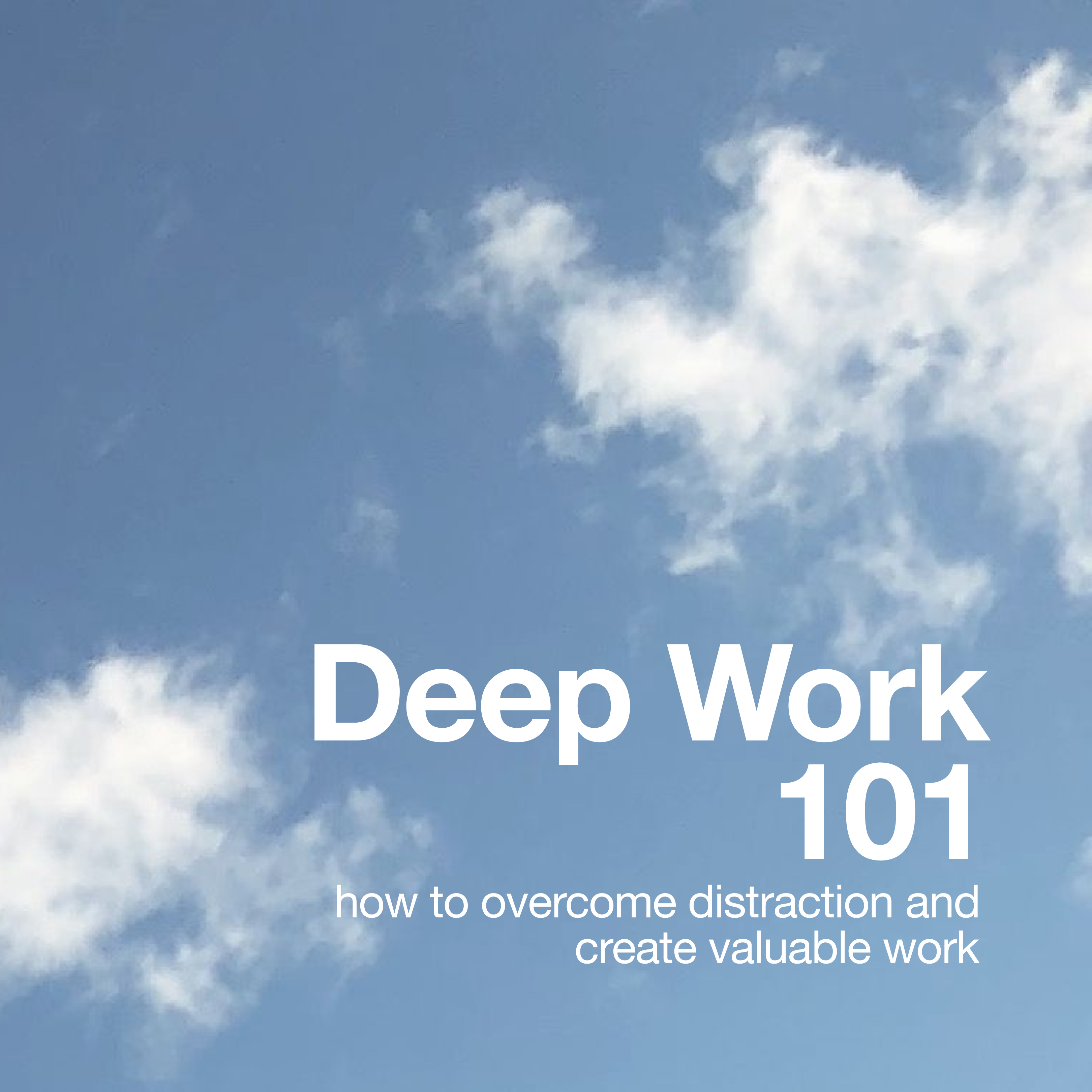Cal Newport’s book, Deep Work: Rules for Focused Success in a Distracted World, is an examination of how technology is interfering with our ability to do valuable work. His bimodal strategy for work and practical advice has had a positive impact on our work habits–making us less busy and more driven.
What’s deep work?
Shallow work, as defined by Newport, is work that is easy to replicate, can be done while multitasking, and doesn’t create new value in your professional life.
Newport feels this type of work will be readily ‘dismissed’ by the market, or the world. In his view, there’s not a lot of value in social media or blogging book reviews (what?!).
The design of social tech products is to grab your attention–tweets, ‘likes,’ Slack pings–all these non-cognitive grabs for our attention can lead to a decline in our brains’ function.
Deep work, however, is defined by Newport as, “professional activities performed in a state of distraction-free concentration that pushes your cognitive abilities to your limit. These efforts create new value, improve your skill, and are hard to replicate.” Deep work can output work that is ‘valuable and rare’ to the market. In some ways, Newport's ideas around deep work overlap with flow theory, a psychology term coined to describe the feeling of being "in the zone."
Neuroscience backs up Newport’s claims. By intensely focusing on an isolated field of work, a tissue called myelin develops in relevant areas of the brain. Myelin facilitates neurons’ firing speed and efficiency. Basically, you’re going to be smarter. Those smarts are going to give you an increasingly rare trait: the ability to ‘master hard things quickly,’ ‘focus intensely without distraction,’ and ‘perform at an elite level.’
By dedicating a chunk of time every workday or every few workdays, you will be able to accomplish quality work that makes you, ‘so good they can’t ignore you,’ (to use Newport’s phrase) with less time spent working.
It’s pertinent that you do not let distractions interfere with your deep work. Newport coins it, “attention residue,” when we look away from our current work to glance at social media or a smartphone notification. That time spent divides our attention for a while after we interacted with it, no matter how brief. Work for long periods on one single task utterly free from any distractions.
Get organization tips & ideas sent to your inbox every month!
Do you have the willpower for deep work? Here are our three strategies:
1. Make ‘deep work’ a routine.
- Set a recurring daily task for the deliberate practice of deep work. Start with one hour every workday. Early mornings with no distractions are ideal.
- Do not let yourself go online. If your ‘deep work’ requires the Internet, make sure you’ve silenced all your notifications
- Put your smartphone on silent.
- Plan before the session for what you want to get done
2. Allow laziness.
- After you finish your deep work session–reward yourself. Take some downtime. You did the hard work. Now relax.
- Remember, there needs to be a give-and-take. It’s not sustainable to perform deep work for 40 hours per week.
3. Embrace boredom.
- Use your willpower to overcome the desire for busyness.
- Letting your mind reset and fighting
- We’re not quitting social media. But we do limit it–taking the apps off our phones, keeping ‘Do Not Disturb’ on, and not looking at our feeds early in the morning or late at night.
If you like the concepts discussed in this post, we recommend Cal Newport’s TED talk on quitting social media and deep work and his podcast called, “Deep Questions with Cal Newport.”
